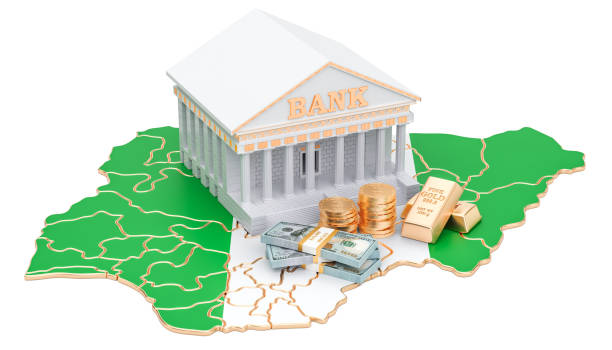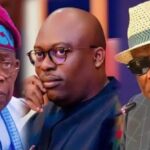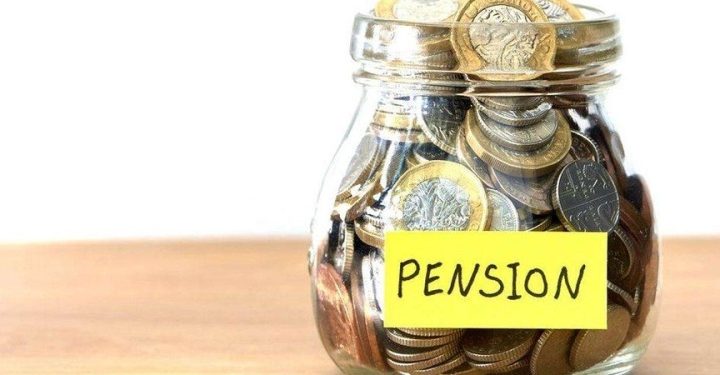In February 2025, Prime Business Africa reported the Central Bank of Nigeria (CBN) announcement of a significant drop in the country’s inflation rate to 24.48%, following a rebasing of the Consumer Price Index (CPI). This statistical adjustment aimed to provide a more accurate reflection of current consumption patterns, replacing outdated metrics. CBN Governor Olayemi Cardoso expressed optimism, stating that the new data-driven approach ensures that monetary policies are formulated based on real-time economic realities.
However, for many Nigerians, this reported decline in inflation has not translated into tangible relief in their daily expenses. The cost of essential goods and services, including food, transportation, rent, and healthcare, continues to rise, widening the gap between stagnant wages and escalating living costs. This disparity raises critical questions about the effectiveness of current economic policies and the urgent need for comprehensive solutions to address the financial strain on the average Nigerian.
Join our WhatsApp ChannelInflation’s Impact on Daily Life
Despite official reports of reduced inflation, consumers across Nigeria report that the cost of living remains prohibitively high. Staple foods, transportation, rent, and healthcare expenses have all seen significant price hikes, making daily survival increasingly challenging.
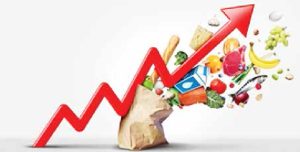
At Oshodi Market in Lagos, trader Alhaja Fatima Awelewa shared her frustration: “I don’t know what they mean by inflation dropping. A bag of rice that used to sell for N30,000 before this government came in still sells for over N80,000. A bottle of vegetable oil that was N800 last year is now over N3,000. Customers are complaining, but we also buy at high rates.”
READ ALSO: Nigerians, Businesses Need Reduction In Prices Not Just Inflation Rate – Muda Yusuf
Similarly, civil servant and mother of three, Mrs. Comfort Ejike at Ajao Estate, lamented: “My salary has remained the same, but everything I buy has doubled in price. Even transportation has increased because of the cost of fuel. Even though I earn above N100,000, I spend junk of it on transport. I wonder how those who earn minimum wage survive. I don’t understand this so-called drop in inflation they are talking about.”
Transportation and Housing Challenges
The removal of fuel subsidies led to a surge in transportation costs, further straining household budgets. Emeka Okoro, a commercial driver in Lagos, explained: “Before, I used to buy fuel of about N8,000 before I start business, but now I need over N25,000. How do you expect transport fares to remain the same? Passengers complain, but we also suffer. Everything is expensive.”
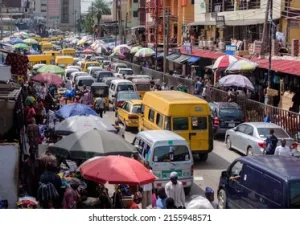
Housing costs have also escalated, with rent prices soaring in urban centres. A two-bedroom apartment that rented for N800,000 in 2022 now goes for between N1.5 million and N2 million, making it nearly impossible for many middle-class Nigerians to afford decent housing.
Business Owners Feeling the Pinch
Business owners, particularly those running small and medium enterprises (SMEs), are also grappling with rising operational costs. Many struggle to keep their operations afloat amid increasing production expenses, high taxes, and fluctuating exchange rates. Madam Rose Okonkwo, a bakery owner in Benin City, lamented: “The price of flour, sugar, and butter has increased drastically. Before, I could produce and sell at reasonable prices, but now, I have had to increase the price of bread, and customers are complaining. We are all suffering.”
Tech entrepreneurs are not spared either. John Uchenna, who runs a small phone accessories business in Isolo, said: “Importing accessories has become too expensive. The dollar rate keeps going up, and by the time my goods arrive, I have to increase prices. Customers are buying less, and business is slow.”
Expert Insights on Inflation and Wages
Economic experts argue that while the rebasing of the CPI provides a more accurate picture of economic trends, it does not necessarily mean that Nigerians are experiencing relief. Many analysts believe that the CBN’s approach focuses more on theoretical data rather than addressing the real challenges facing consumers.
Dr. Akinwunmi Adebayo, an economist and policy analyst, said “The drop in inflation does not automatically translate to lower prices. It only means that the rate at which prices are increasing has slowed down slightly. But when the cost of living is already high, a slight slowdown doesn’t mean affordability for the average Nigerian.”
To bridge the gap between economic policy and consumer realities, the government should take more proactive measures to tackle the root causes of high prices. Investing in local food production and supporting farmers with subsidies can help stabilize food prices. Implementing policies that boost the local currency can help reduce import costs and inflationary pressure.
Policy Solutions to Address the Wage-Inflation Gap
Addressing the widening gap between wages and living costs requires comprehensive policy interventions. One proposed solution is the periodic review and adjustment of the minimum wage to reflect inflationary trends. Economic analyst Dr. Akinwunmi Adebayo emphasised: “The government needs to implement a system where the minimum wage is reviewed annually based on inflation rates. If inflation rises, wages must also rise accordingly. This will help maintain the purchasing power of Nigerian workers.”
Additionally, experts advocate for tax relief programs for low-income earners and small business owners. Reducing taxes on essential goods and providing subsidies for small-scale enterprises can cushion the economic impact on struggling citizens.
Strengthening Local Production to Combat Inflation
One of the most effective ways to curb inflation is to reduce Nigeria’s dependence on imports. Over-reliance on imported goods, especially food and fuel, exposes the economy to external shocks such as currency devaluation and rising global commodity prices.
Agricultural economist Dr. Ifeoma Okeke suggests “Nigeria must invest in agricultural mechanization and support local farmers to increase food production. If we grow what we eat, the prices of food items will become more stable, and we won’t rely so much on importation.”
Addressing Forex Instability and Fuel Costs
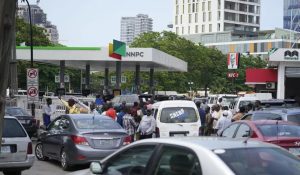
The fluctuating exchange rate has had a direct impact on inflation, especially in import-dependent sectors. The naira’s depreciation against the dollar has made imported goods significantly more expensive. This affects not just luxury items but also everyday essentials such as medications, electronics, and food items like wheat and vegetable oil.
Financial analyst Dare George noted “If we stabilize the naira by improving forex supply, prices will become more predictable. The government should prioritize policies that encourage foreign direct investment and reduce dependence on external borrowing.”
Fuel prices also play a significant role in inflation. Since the removal of fuel subsidies, transportation costs have skyrocketed, affecting all sectors of the economy.
The Need for Government Transparency and Policy Implementation
While the CBN’s inflation figures indicate progress on paper, the real impact is yet to be felt by Nigerians. Many argue that government officials must do more to bridge the gap between statistical improvements and real-life economic conditions. Transparency in economic policies, effective communication, and engagement with the public can help build trust and ensure that policies truly address the needs of the people.
Economist Dr. Tunde Alabi stressed: “It’s not enough to announce inflation figures. The government must show Nigerians how their policies are making life easier. If food prices are rising and salaries are stagnant, then the statistics mean little to the average person.”
Emmanuel Ochayi is a journalist. He is a graduate of the University of Lagos, School of first choice and the nations pride. Emmanuel is keen on exploring writing angles in different areas, including Business, climate change, politics, Education, and others.
- Emmanuel Ochayihttps://www.primebusiness.africa/author/ochayi/
- Emmanuel Ochayihttps://www.primebusiness.africa/author/ochayi/
- Emmanuel Ochayihttps://www.primebusiness.africa/author/ochayi/
- Emmanuel Ochayihttps://www.primebusiness.africa/author/ochayi/





